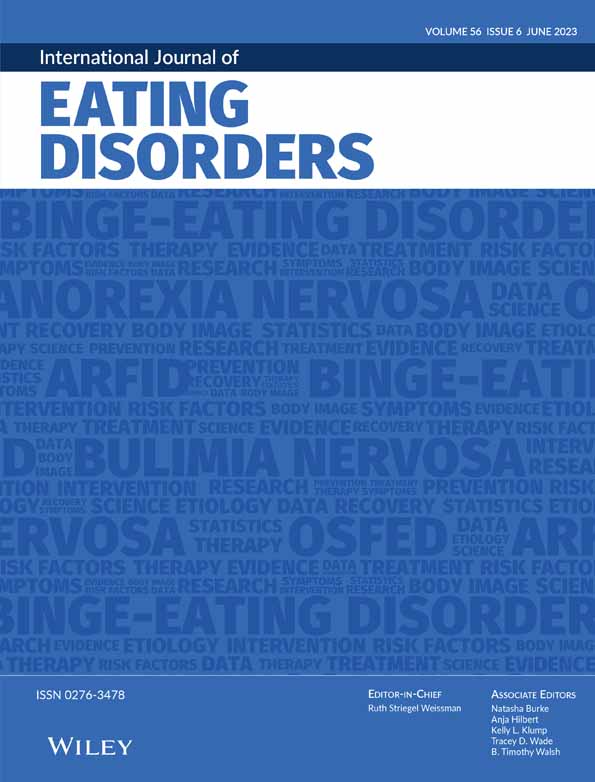Predictors of recovery in eating disorders: A focus on different definitions
Abstract
Objective
Only half of the patients with eating disorders (EDs) fully recover. To increase these rates, knowledge about predictors is essential. Previous studies found that purging behaviors, BMI, ED duration, and depression, predicted symptomatic ED recovery. The current study investigated these four predictors for symptomatic improvement and the subjective experience of recovery.
Method
Participants who completed the baseline and second wave of the Netherlands Eating disorder Registry (NER) (N = 374), were categorized into: (1) Subjective recovery; (2) Clinical improvement; (3) Symptomatic recovery. Using regression analyses, it was investigated if the four baseline factors predicted recovery at wave two. Effects were compared among a binge-purging and restricting group.
Results
In total, 136 participants were subjectively recovered, 135 showed clinical improvement, and 70 were symptomatically recovered. Overlap occurred between definitions. Lower depression scores predicted subjective recovery (OR 0.77, p < .001) and clinical improvement (OR 0.80, p < .001), and shorter ED duration predicted all definitions (OR 0.99, p < .001; OR 0.99, p < .001; OR 0.99, p = .013). Similar effects were found in the binge-purging group.
Discussion
Our study emphasized that the same predictors, like depression, apply to symptomatic improvement and the personal experience of recovery. Depression appears an important factor during ED treatment.
Public significance
Recovery rates for EDs are low. To understand this, knowledge about predictors of ED recovery is essential. This study examined the effects of four established predictors across symptomatic improvement and subjective recovery (a more personal experience of recovery). Lower depression scores predicted both, indicating that depression appears important for multiple definitions of recovery and therefore warrants attention during ED treatment.
CONFLICT OF INTEREST STATEMENT
The authors declare no conflicts of interest.
Open Research
OPEN RESEARCH BADGES
This article has earned an Open Data badge for making publicly available the digitally-shareable data necessary to reproduce the reported results. The data is available at [insert provided URL from Open Research Disclosure Form].
DATA AVAILABILITY STATEMENT
Data will be available upon reasonable request.




